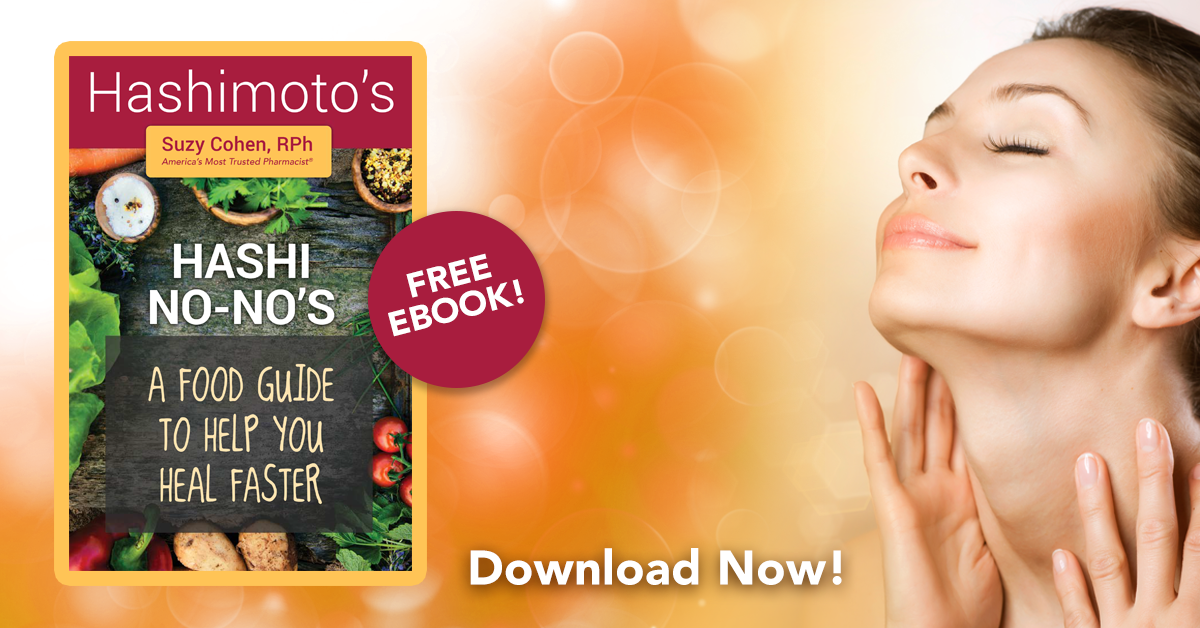What's On This Page?
ToggleWhat is the best honey for allergies? Raw or pasteurized? Have you ever wondered this, or given it a thought?
Honey, the golden elixir of ancient apothecaries, has been sweetening our lives for centuries. Did you know that the average American consumes about 1 and 1/2 pounds of honey each year?!
With its velvety smooth texture and mouth-watering flavor, texture and flavor may vary from one jar to another. Honey is not just a sweetener but a cultural staple with a ton of health benefits. However, for people with allergies, the choice between raw and pasteurized honey isn’t just about taste – it’s about health. Most people don’t even know honey contains pollen!
If you want to know the current pollen count in your city, look at your weather app on your phone, or visit this website: POLLEN.COM
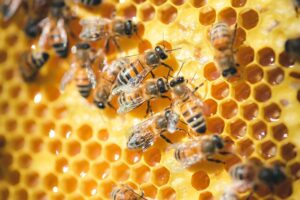
Today, I’ll dive into the world of honey, focusing on two popular types because I want you to be able to make an informed choice: Raw and unfiltered and pasteurized. I want to say up front that I have all kinds of honey in my home, this is not a promotion for any type, or any brand. I also have agave syrup which I discuss down below and use most of the time.
My goal? To share facts about the two major types of honey, and find out which honey is the best for allergies, or people with sensitivities to pollen. So, grab your tea, sweeten it with your favorite honey (I won’t judge!), and let’s explore this sticky subject!
You may be interested in my other article, Honey: Nature’s Liquid Gold And 5 Medicinal Marvels.
And then there’s this intriguing article, Olive Oil Reduces Cancer And Risk Of Stroke.
Best Honey for Allergies: Differences Between Raw and Pasteurized
Raw and Unfiltered Honey
- Raw honey comes straight from the hive to the bottle, with minimal processing. It skips pasteurization (heating at high temperatures) and is only lightly filtered to remove large particles. This means it retains most of its natural vitamins, enzymes, and other nutritional elements. But is it the best honey for allergies? Probably not.
- Benefits:
- Contains natural pollen, antioxidants, and enzymes that potentially boost general health.
- Believed to support immunity and provide allergy relief (ironically for those NOT sensitive to pollen).
- Offers a complex flavor profile, which varies depending on the flowers visited by the bees.
- Not everyone will have an allergic reaction to the pollen in honey. People who do not have pollen allergies are unlikely to experience any problems and will benefit from immune-boosting properties of honey. While I am thinking about it, you can still get a free bottle of my Vitamin D3 which is for immune health.* See below.
Pasteurized Honey
- Pasteurized honey has been heated at high temperatures to kill any yeast cells and increase shelf life. This process also results in a smoother, more uniform product by removing crystallization.
- Benefits:
- Safer for individuals with poor immune function because pasteurization kills potentially harmful bacteria.
- Less likely to contain pollen, which is beneficial for those with pollen allergies. That’s why it’s the best honey for allergies, at least in my humble opinion. Let me explain a bit more.
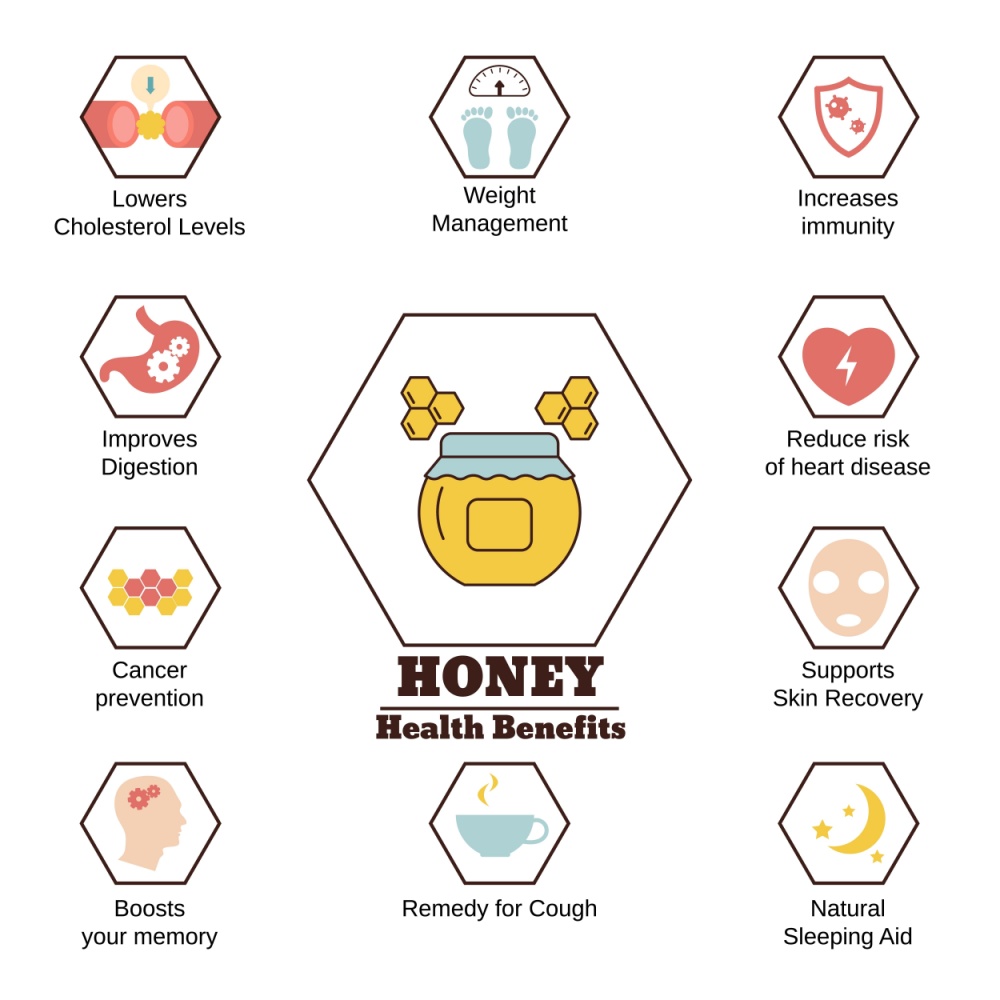
Allergy Alert: Pollen in Raw Honey
Raw honey’s claim to fame – simply due to its natural composition – can also be its downfall for allergy sufferers. Pollen, the very substance that many people react to during spring and fall, is abundant in raw honey. I can’t give you an amount because there isn’t a standardized measurement for how much pollen is in a teaspoon as it can vary based on the type of honey, the methods of filtration the company used, and the specific plants the bees have visited.
I looked into this. Apparently, researchers who study honey characterize it by looking at pollen under a microscope, but they can’t count it, or quantify the pollen molecules in terms of teaspoons or grams or whatever. But what I can say is it’s significant enough to trigger allergies in people who also react to pollen.
If you’re trying to avoid pollen by staying indoors, taking Benadryl or Claritin, using eye drops and so forth, I’d avoid raw/unfiltered honey because you don’t want to be eating it if you’re doing all of the above. That said, the type of pollen blowing in the wind that makes your eyes itch isn’t necessarily the same, exact pollen in the flowers used during the making of honey. This could get convoluted, and I’m trying to keep the conversation straightforward.
I hear a “But, but…”
I know that some people might be reading this and thinking, “But I was told that raw honey will help my allergies!”
This is a popular belief – the logic that consuming raw honey (usually local to your state) can desensitize allergic reactions to pollen is popular but scientifically debatable. The idea is that local honey would contain the same types of pollen that trigger allergic reactions in the area, helping you to build tolerance. However, the scientific evidence supporting this claim is limited and mixed. Only you will know how you react to that.
Limited research I’ve read conflicts a little bit. While raw honey contains pollen, it is not always the same type of pollen that triggers seasonal allergies, which are typically caused by windborne pollen.
I don’t recommend raw/unfiltered honey for people with severe pollen allergies. That’s because there is the potential risk that raw honey can contain enough flower pollen to trigger an allergic response. Therefore, if you notice symptoms like itching, swelling, or respiratory issues after consuming raw/unfiltered honey, switch to pasteurized.
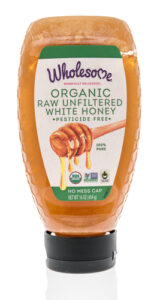
Best Honey for Allergies: Use Pasteurized!
For allergy sufferers, especially those sensitive to pollen, pasteurized honey may be a safer option.
The pasteurization process significantly reduces the pollen content, making it less allergenic for people who experience allergic reactions to raw honey, or in my opinion, for people with multiple chemical sensitivities. Pasteurized honey offers the same sweetness as raw/unfiltered.
The risk of an allergic reaction due to pollen content is much lower with pasteurized honey. That’s the #1 reason I’m calling pasteurized as the best honey for allergies!
Flowers and Medicinal Qualities
The type of flowers bees pollinate significantly affects the medicinal properties of the honey produced.
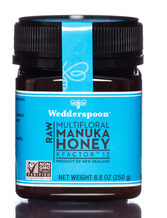
- Manuka Honey: Made from the nectar of the Manuka bush in New Zealand, this honey is renowned for its antimicrobial properties.
- Clover Honey: Common in North America, clover honey is known for its pleasing sweetness and potential to soothe coughs and mild throat irritations.
- Buckwheat Honey: Dark and rich, buckwheat honey is packed with antioxidants and is often used to treat respiratory conditions and boost overall antioxidant levels.
A Word About Agave
Agave syrup, also called nectar, is derived from the sap of the agave plant, which is a succulent. No bees are involved. This syrup is produced by extracting, filtering, and heating the sap to break down its carbohydrates into sugars. Unlike honey, which is a natural product made by bees and may contain pollen because the bees collect nectar and pollen from flowers, agave syrup is made directly from the plant material and involves no animal intermediaries or flower components. That means it does NOT pollen! It would be a great alternative to people who don’t want pasteurized honey. It’s also a great option for people who are a little ‘freaked’ by the idea that honey is made with insect regurgitation. I mean…that is what it is right?
I still eat it sometimes, I’m not that freaked, but I use plain sugar most of the time (and sometimes agave) because I like the flavor better, and I’m sensitive to pollen.
Summary: Which Honey to Choose?
In conclusion, both raw and pasteurized honeys have their place in our world. If you’re an allergy sufferer, especially to pollen, the best honey for allergies is pasteurized honey. It is not 100% free I don’t think, but likely a safer bet. Agave nectar is another pollen-free choice for a sweetener.
Pasteurized honey (as opposed to raw/unfiltered) provides the sweet taste and some health benefits without the heightened risk of an allergic reaction. For those without such allergies, raw honey offers a richer nutrient profile and potential health benefits, including allergy relief from local plant pollens (though not windborne pollens).
Whether you choose raw or pasteurized honey (or agave) always ensure it is from a reputable source to guarantee you’re getting a pure and high-quality product. Honey, in its many forms, remains a testament to nature’s sweetness and complexity, offering more than just a way to sweeten our day but also a connection to the natural world around us. So, whether you drizzle it on your morning yogurt or stir it into your evening tea, choose the type that best suits your health needs and enjoy the natural sweetness honey provides.

Suzy Cohen, has been a licensed pharmacist for over 30 years and believes the best approach to chronic illness is a combination of natural medicine and conventional. She founded her own dietary supplement company specializing in custom-formulas, some of which have patents. With a special focus on functional medicine, thyroid health and drug nutrient depletion, Suzy is the author of several related books including Thyroid Healthy, Drug Muggers, Diabetes Without Drugs, and a nationally syndicated column.


